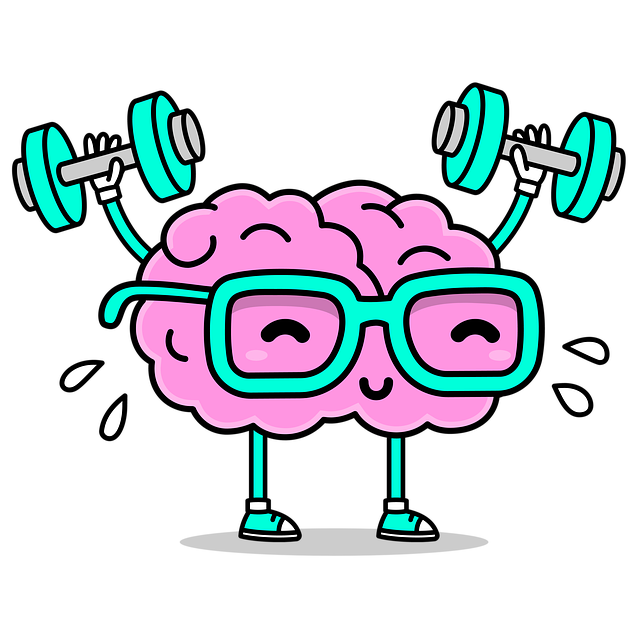Mental wellness, impacted by modern life pressures, is crucial for overall well-being. Wheat Ridge Suicide Prevention Therapy emphasizes coping skills development and inner strength building as effective strategies. Journaling, a core practice, allows individuals to explore thoughts and emotions, fostering self-reflection and emotional healing. Creating a personalized suicide prevention journal with prompts for self-care, gratitude, and progress tracking enhances mental wellness over time. Tracking progress and seeking support from specialized services like Wheat Ridge Suicide Prevention Therapy are vital components of proactive mental health management.
“Unwind your mind and embark on a journey of self-discovery with mental wellness journaling. This powerful exercise, backed by research in Wheat Ridge suicide prevention therapy, offers a therapeutic space for processing emotions and cultivating resilience.
Our guide provides a step-by-step approach to creating your own journal, covering essential topics, and tracking progress. By incorporating reflective prompts, you’ll gain insights into your mental wellness, enhance self-awareness, and foster positive growth. Remember, taking care of your mind is a vital step towards overall well-being.”
- Understanding Mental Wellness and its Impact
- The Power of Journaling as a Therapeutic Tool
- Creating Your Suicide Prevention Journal: A Step-by-Step Guide
- Incorporating Essential Topics and Prompts
- Tracking Progress, Celebrating Growth, and Seeking Support
Understanding Mental Wellness and its Impact

Mental wellness is a crucial aspect of overall well-being, encompassing emotional, psychological, and social health. It affects how we think, feel, and act in our daily lives, influencing our ability to cope with stress, make choices, and relate to others. Understanding mental wellness is essential, as it empowers individuals to recognize when they may be struggling and seek appropriate support. Issues like anxiety, depression, and other mental health challenges can significantly impact one’s quality of life if left unaddressed.
In today’s fast-paced world, where demands on our time and energy are high, prioritizing mental wellness becomes even more critical. The good news is that there are effective strategies to enhance and maintain mental well-being. Coping skills development, for instance, equips individuals with tools to navigate life’s challenges constructively. Additionally, fostering inner strength can boost resilience, enabling people to bounce back from setbacks and adversity. Wheat Ridge Suicide Prevention Therapy offers valuable resources and guidance in this regard, helping individuals find hope, develop coping mechanisms, and cultivate the inner strength needed to overcome life’s obstacles and achieve lasting anxiety relief.
The Power of Journaling as a Therapeutic Tool

Journaling has emerged as a powerful therapeutic tool, offering individuals a safe and private space to explore their thoughts and emotions. This simple yet profound practice is a cornerstone of Wheat Ridge Suicide Prevention Therapy, where trained professionals guide clients in uncovering and processing deep-seated feelings. By putting pen to paper, individuals can engage in meaningful self-reflection, fostering empathy building strategies that strengthen emotional healing processes.
Through regular journaling exercises, one can develop coping skills that prove invaluable in managing stress, anxiety, and even depression. It becomes a dialogue between the conscious mind and the subconscious, allowing for the release of repressed emotions and the clarification of thoughts. This act of self-expression paves the way for personal growth, enhanced self-awareness, and improved overall mental wellness.
Creating Your Suicide Prevention Journal: A Step-by-Step Guide

Creating your own suicide prevention journal can be a powerful tool for nurturing mental wellness and building inner strength. Start by selecting a journal that feels right for you; it could be as simple or elaborate as you’d like, reflecting your personal style and preferences. Once chosen, set aside dedicated time to establish a consistent journaling practice. Begin each entry with a clear intention, focusing on self-care practices and resilience-building exercises.
In the first page, write down your current emotions and thoughts, allowing yourself to explore and express them freely. The following steps involve incorporating various techniques: reflect on past achievements and sources of strength, set achievable goals for the day or week, practice gratitude by listing things you’re thankful for, and engage in positive self-talk exercises. As you continue, include tools and resources from Wheat Ridge Suicide Prevention Therapy that have been beneficial to your journey. Regularly revisiting these entries can help track progress and strengthen your mental wellness over time.
Incorporating Essential Topics and Prompts

Incorporating essential topics and prompts into your mental wellness journal is a powerful tool for self-reflection and growth. When navigating challenging emotions or experiences, it’s crucial to explore various aspects of your mental health. Wheat Ridge Suicide Prevention Therapy emphasizes the importance of self-expression as a form of crisis intervention guidance. Journaling allows you to articulate your feelings, thoughts, and fears, facilitating emotional healing processes and promoting emotional intelligence.
Prompt ideas can range from exploring your daily mood and emotions to reflecting on past traumas or significant life events. For instance, consider writing about specific scenarios that trigger stress or anxiety, and how you respond to these situations. Understanding these patterns is vital for developing effective coping strategies. Additionally, prompts related to gratitude, mindfulness, and positive affirmations can enhance emotional well-being, as recommended by many emotional healing processes experts.
Tracking Progress, Celebrating Growth, and Seeking Support

Tracking your progress and celebrating growth are essential components of any self-care routine development for better mental health. As you regularly engage in mental wellness journaling exercise guidance, you’ll begin to notice patterns and shifts in your thoughts, emotions, and behaviors. This can help you set achievable goals and measure your success over time. By reviewing past entries, you gain valuable insights into what strategies have been most effective in supporting your mental wellness journey.
Seeking support is another crucial aspect of maintaining and enhancing mental wellness. While journaling can be a powerful tool for self-reflection and personal growth, it’s important to remember that you don’t have to navigate this path alone. If you encounter particularly challenging times or experience intense emotional distress, consider reaching out to your healthcare provider. Wheat Ridge Suicide Prevention Therapy offers specialized services designed to foster cultural competency training among providers, ensuring you receive compassionate and culturally sensitive care tailored to your unique needs.
Mental wellness journaling can be a powerful tool for self-reflection and growth. By incorporating topics and prompts from Wheat Ridge Suicide Prevention Therapy, individuals can develop a comprehensive understanding of their mental state and make positive changes. This article has guided you through the process of creating a suicide prevention journal and offered strategies to track progress and seek support. Remember, taking care of your mental health is essential, and journaling can be a transformative step towards improved well-being.














